Page 16 • (387 results in 0.042 seconds)
-
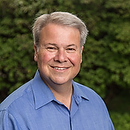
Associate Professor of Music - Voice | Music | johnsobw@plu.edu | 253-535-7625 | Baritone Barry Johnson is enjoying a successful career as an opera singer, stage director, concert performer, and voice teacher.
Barry Johnson Associate Professor of Music - Voice Phone: 253-535-7625 Email: johnsobw@plu.edu Office Location: Mary Baker Russell Music Center - 341 Office Hours: (On Campus) Mon - Fri: By Appointment Professional Biography Additional Titles/Roles Co-Director of Opera Production/Workshop Director of Knights Chorus Education M.M., Music/Vocal Performance and Pedagogy, University of Colorado, Boulder, 1989 B.M., Music/Choral Education, University of Arizona, 1985 Responsibilities Teaches Applied
Office HoursMon - Fri: - -
An Interview with Dr. Patrick Moneyang by Rebecca Wilkin
anxiety, and that I need to adapt my pedagogy to help these students still have a great classroom experience. Rebecca: So, what do you like to do for fun? Patrick: I am a happy person and I like things that help me stay active and make me laugh. I like having a good laugh at myself…
-
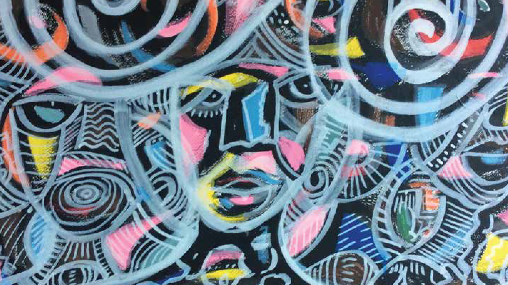
Cover art by Ta-coumba T. Aiken Intersections, Number 50, Fall 2019 Intersections is a publication by and largely for the academic communities of the twenty-seven institutions that comprise the Network of ELCA Colleges and Universities (NECU). Each issue reflects on the intersection of faith, learning,…
these intersect with contemporary challenges, opportunities, and initiatives. This issue explores: Diversity, Equity, and Inclusion. Preview essays in this issue with the individual links below: Making Diversity Matter: Inclusion is the Key Dr. Monica Smith The Perils and Promise of Privilege Guy Nave The Vocation of White People in a Racist Society Caryn D. Riswold Learning the Language of Inclusive Pedagogy David Thompson The “V” Word: Different Dimensions of Vocation in a Religiously Diverse
-
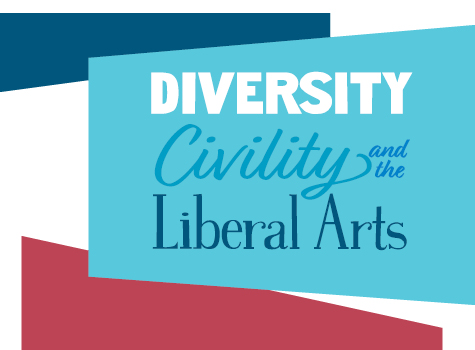
PLU has been selected to send a team to participate in the Council of Independent College’s 2019 Diversity, Civility, and the Liberal Arts Institute taking place in Atlanta, GA on June 2nd-5th. One of twenty-five campus groups selected via a competitive application process, PLU’s team…
basic understandings about race, gender, and other identities; historical interpretation and authority; social justice; social and political change; the hidden effects of stereotyping; inclusive pedagogy; and free speech issues; [and] develop realistic plans to enable their institutions to strengthen diversity and civility on campus, both inside and outside the classroom.” The team hopes to engage the campus in using the lessons from the institute to aid in the ongoing development of the Diversity
-
The word anthropology comes from the Greek words anthropos, meaning human, and logos, which refers to doctrine, theory or science.
observation. Archaeology focuses on the material remains of past peoples to study their cultures, investigate causality in the development of human institutions, and to contribute to a cross-cultural understanding of human behavior. Linguistic Anthropology studies the fundamental structures of human language as well as the culturally patterned usages of language in social interaction. Biological Anthropology studies the emergence and subsequent biological adaptations of humanity as a species influenced by
-
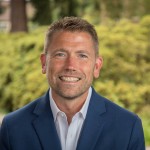
Associate Professor of Education | School of Education | suttonps@plu.edu | 253-535-7285 | Paul Sutton teaches sociocultural foundations of education, secondary humanities methods, and secondary literacy courses as well as various seminar courses in the undergrad and graduate-level teacher education programs.
Education Teacher Collaborative Learning Social Foundations of Education History of Education Selected Articles Jones, S., Sutton, P. S. "Doing equity work while black in a culturally white school district." Phi Delta Kappan 2021: 103(1), 38-42. Sutton, P. S., Shouse, A. W. "Tending to the “deep rules” of teacher collaboration." Commentary found in Teachers College Record 2020: Sutton, P. S., Knuth, R. "How high school departments impact school improvement initiatives." Journal of Curriculum Studies
Area of Emphasis/Expertise -

Director, First Year Experience Program | First Year Experience Program | suttonps@plu.edu | 253-535-7285 | Paul Sutton teaches sociocultural foundations of education, secondary humanities methods, and secondary literacy courses as well as various seminar courses in the undergrad and graduate-level teacher education programs.
Education Teacher Collaborative Learning Social Foundations of Education History of Education Selected Articles Jones, S., Sutton, P. S. "Doing equity work while black in a culturally white school district." Phi Delta Kappan 2021: 103(1), 38-42. Sutton, P. S., Shouse, A. W. "Tending to the “deep rules” of teacher collaboration." Commentary found in Teachers College Record 2020: Sutton, P. S., Knuth, R. "How high school departments impact school improvement initiatives." Journal of Curriculum Studies
Area of Emphasis/Expertise -

Director, First Year Experience Program | Interdisciplinary Programs | suttonps@plu.edu | 253-535-7285 | Paul Sutton teaches sociocultural foundations of education, secondary humanities methods, and secondary literacy courses as well as various seminar courses in the undergrad and graduate-level teacher education programs.
Education Teacher Collaborative Learning Social Foundations of Education History of Education Selected Articles Jones, S., Sutton, P. S.. ""Doing equity work while black in a culturally white school district."." Phi Delta Kappan 2021: 103(1), 38-42. Sutton, P. S., Shouse, A. W. . ""Tending to the “deep rules” of teacher collaboration."." Commentary found in Teachers College Records 2020: Sutton, P. S., Knuth, R.. " "How high school departments impact school improvement initiatives." ." Journal of
Area of Emphasis/Expertise -
A weekly meeting with program students and faculty to discuss progress, challenges, and the intersection of Indigenous approaches and the university experience.
critical readings on the intersection of race and Indigeneity in US and global contexts, this seminar equips students with important intellectual tools to understand the complexities of these intersections.NURS 404Healthcare DiversityFocuses on core knowledge and competencies necessary to give culturally congruent care to people from diverse populations. Open to non-nursing students with instructor permission. (4)RELI 236Native American Religious TraditionsIntroduction to a variety of Native American
-
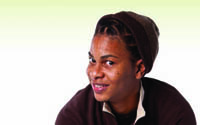
Why does Maurice Eckstein care about social justice? “I didn’t really know a lot about social justice before I got here,” said Maurice Eckstein. “When I came here I was forced to become aware of it.” By Kari Plog ’11 Maurice Eckstein ’11 is a…
here I was forced to become aware of it.” Eckstein said that he felt thrust into the realm of studying social justice when he realized he could identify with the African-American community because of his appearance. Back home, in his very culturally diverse Caribbean nation, his appearance didn’t cause him to stand out. Here, that wasn’t always the case. It allowed him to look at issues in ways he might have never considered before. For instance, Eckstein has been wrestling with concept of
Do you have any feedback for us? If so, feel free to use our Feedback Form.


